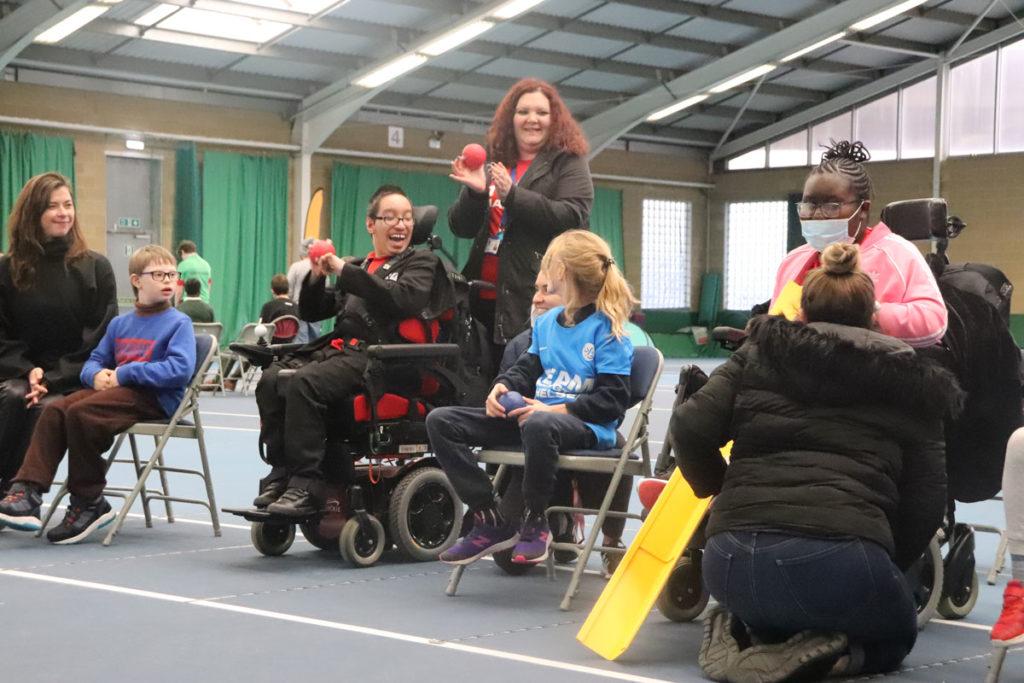London sport events to get 3,000 young disabled people active

A new season of sport events gives 3,000 disabled Londoners under 18 the opportunity to get active. The events, with the first held at Westway Leisure Centre on 22nd February 2022, give some of the most isolated and lonely young people in society the opportunity to spend time with others and benefit their mental wellbeing. Research shows 91% of disabled children are socially isolated, according to Disabled Children’s Partnership. It’s so important to tackle this now to prevent their wellbeing from deteriorating further.
London Youth Games strongly believes that sport is a right for all. Covering 13 sports from boccia to wheelchair tennis to sitting volleyball, the ParaGames programme gives disabled people aged under 18 the chance to take part in competitive sport.
Disabled people have been heavily impacted through the pandemic, with many isolating from society for safety reasons. Sport can make a huge impact, helping disabled people connect with others, feel less isolated and feel part of their community.
The disability sport events programme starts with boccia on 22 February at Westway Leisure Centre in Kensington and Chelsea. This event gives young disabled Londoners the chance to follow in Paralympian David Smith’s footsteps, who won his second Boccia gold medal at Tokyo 2020 last year.
Players with severe learning disabilities, physical impairments, profound and multiple impairments, such as wheelchair users are welcomed to take part in the ParaGames events. Over half (50.9%) of disabled children and young people in London do less than an average of 60 minutes activity a day, according to latest figures from Sport England’s Active Lives Children and Young People Survey. London Youth Games is passionate about helping more young disabled Londoners to feel the benefits of being active.
Dan Bentley, Paralympic gold and bronze medallist and ParaGames Boccia Competition Director said:
“The last 2 years has affected disabled people in a big way, especially when you get told you can’t go out. It’s really good for the young disabled people coming to the event to be able to get out again and to have a competition like this.
It’s great to see boccia getting bigger in schools. When I was at school, I didn’t get the chance to do boccia. I had to get over so many barriers to take part. This competition is excellent for young people to get them active and to get them to mix again.”
Suzi Ainsworth, Barnet Team Manager said: “Boccia gives the young people the ability to focus and concentrate. We’re actually able to get one of our young men to focus on a task for 3-4 seconds, which is usually really difficult to do. Because of boccia, it shows us what he’s capable of. It gives them a chance to transfer those skills to reading and writing too. ”
Tino, a participant from Barnet said: “I feel excited about playing Boccia. I like seeing lots of people from other schools.”
Kerrin Cross, Lambeth Team Manager said: “It’s really good for them because we’ve got a unit in a mainstream school so it makes these children feel special. As they’re autistic, it’s helped them to regulate their emotions too.”
Andy Dalby-Welsh, Chief Executive, London Youth Games said: “Being registered blind, sport has played a life-changing role for me, helping me develop friendships and build resilience. We’re determined to make sport more inclusive and accessible for disabled people through ParaGames events and help more disabled young Londoners to experience both the boost to their mental health, to make new friends and to enjoy the competition.”
Olivia Besse, Kensington and Chelsea and Hammersmith and Fulham Team Manager, said: “There’s not that much for disability sports around so the children don’t get many chances to take part. Because these events are so organised, it makes it easy to turn up and for them to get involved.”
